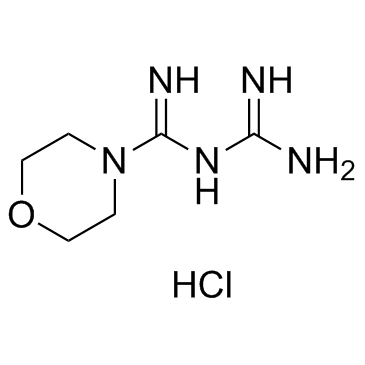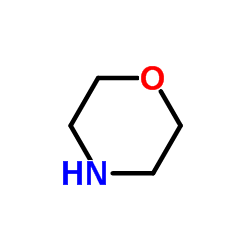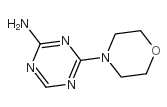3160-91-6
| Name | moroxydine hydrochloride |
|---|---|
| Synonyms |
Moroxydine (hydrochloride)
4-Morpholinecarboximidoylguanidine Hydrochloride abobhydrochloride Moroxydine hydrochlorid Hydrogen chloride - N-carbamimidoyl-4-morpholinecarboximidamide (1:1:1) N-Carbamimidoyl-4-morpholinecarboximidamide chlorhydrate (1:1) assur Moroxydine hydrochloride 4-Morpholinecarboximidamide, N-(aminoiminomethyl)-, chloride, hydrogen salt (1:1) N-Carbamimidoyl-4-morpholincarboximidamidhydrochlorid(1:1) N1,N1-Anhydrobis(b-hydroxyethyl)biguanide Hydrochloride N,N-oxapentamethylenebiguanide hydrochloride virusmin N-Carbamimidoyl-4-morpholinecarboximidamide hydrochloride virustat N1-morpholinobiguanidine hydrochloride Miejunging N-amidino-4-morpholincarboxamidine*hydrochloride Malinguchlorate Abitilguanide Hydrochloride flumidin 1-Morpholinobiguanide Hydrochloride N-(aminoiminomethyl)-4-morpholinecarboximidamide hydrochloride (1:1) 4-Morpholinecarboximidamide, N- (aminoiminomethyl)-, monohydrochloride morpholinebiguanide monohydrochloride spenitol N-carbamimidoylmorpholine-4-carboximidamide hydrochloride MORPHOLINO-BIUANIDE HYDROCHLORIDE MOROXYDINE HCL Abitylguanide Hydrochloride N-Carbamimidoylmorpholine-4-carboximidamide hydrochloride (1:1) morpholinebiguanidine hydrochloride |
| Description | Moroxydine HCl is a synthetic antiviral compound chemically belonging to the series of the heterocyclic biguanidines.Target: Influenza VirusMoroxydine is an antiviral drug that was originally developed in the 1950s as an influenza treatment. It has potential applications against a number of RNA and DNA viruses [1]. Structurally moroxydine is a heterocyclic biguanidine. Moroxydine was reported in March 2014 that three kindergartens in two provinces of China had been found to be secretly dosing their students with moroxydine hydrochloride to try to prevent them from becoming ill. The kindergartens are paid only for the days that pupils attend and wanted to ensure that they maximised their earnings [2]. |
|---|---|
| Related Catalog | |
| References |
| Boiling Point | 327ºC at 760 mmHg |
|---|---|
| Melting Point | 211-214ºC(lit.) |
| Molecular Formula | C6H14ClN5O |
| Molecular Weight | 207.661 |
| Flash Point | 151.6ºC |
| Exact Mass | 207.088684 |
| PSA | 98.22000 |
| LogP | 0.76700 |
CHEMICAL IDENTIFICATION
HEALTH HAZARD DATAACUTE TOXICITY DATA
|
| Hazard Codes | Xi: Irritant; |
|---|---|
| Risk Phrases | R36/37/38 |
| Safety Phrases | 26-37/39 |
| WGK Germany | 3 |
| RTECS | QD9815000 |
| HS Code | 2934999090 |
|
~% 
3160-91-6 |
| Literature: European Journal of Medicinal Chemistry, , vol. 28, # 2 p. 149 - 158 |
|
~% 
3160-91-6 |
| Literature: Tetrahedron, , vol. 69, # 19 p. 3867 - 3871 |
| Precursor 2 | |
|---|---|
| DownStream 2 | |
| HS Code | 2934999090 |
|---|---|
| Summary | 2934999090. other heterocyclic compounds. VAT:17.0%. Tax rebate rate:13.0%. . MFN tariff:6.5%. General tariff:20.0% |





![4-Morpholinecarboximidamide,N-[4-methyl-6-(2-oxopropyl)-2-pyrimidinyl]- structure](https://image.chemsrc.com/caspic/140/55558-88-8.png)